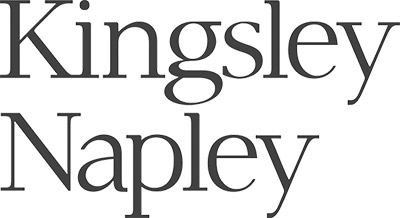
Sponsored briefing: Financial litigation in India – An analysis of recent developments in insolvency law
Daizy Chawla charts the progress of India’s Insolvency and Bankruptcy Code ‘The Insolvency Code is a legislation which deals with…

Daizy Chawla charts the progress of India’s Insolvency and Bankruptcy Code ‘The Insolvency Code is a legislation which deals with…

Luminance’s Emily Foges on the advance of legal tech In 2019, relationships between different legal service providers are a driving…

Julian Stait and Tom Canning, litigation partners in the London arm of Milbank, look at the complex field of tech…

Rémy Gerbay looks at whether Africa could prove a suitable arbitration seat for US corporations Private investments by US corporations…

Rishi Pursem SC and Bilshan Nursimulu discuss how Mauritius has evolved to become an increasingly popular choice for arbitration On…

Moritz Blasy, Nicolai Binkert and Simon Ott detail Liechtenstein’s new conciliation procedure Liechtenstein’s fiduciary and financial services industry has a…

Partners in King & Spalding’s London disputes team discuss their thoughts on some of the current trends and issues within…

K2 Intelligence’s Darren Matthews on what successful asset search and recovery looks like Understanding the form, value and recoverability of…

The UK Financial Conduct Authority (FCA) announced on 27 July 2017 it would no longer require that banks that are…

CM Murray is a leading specialist partnership and employment law firm based in London. The firm is ranked by the…

Ten years ago, very few large law firms needed external legal advice on dealing with their regulator. This was because…

An oft-cited phrase from partners of law firms is that ‘the partners are the guardians of the firm for the…

Gus Sellitto of Byfield Consultancy discusses the trends he is seeing in legal PR and the role of external advisers…

The risks and exposures facing law firms have dramatically changed over the last decade. The legal industry now faces a…

Leading a law firm has always been demanding, but the extent and pace of change engulfing the global legal industry…

Chris Bull of The Intuity Alliance/Kingsmead Square considers the structure, funding and skills needed for a legal service business…

Stone Group’s Paul Flack explains how to reduce maintenance costs without sacrificing support quality How much are you spending to…

Andrew Stanton of Palisade Secure outlines the steps law firms should be taking to reduce threats According to a…

Brian Stuart of FTI Consulting details the challenges facing legal teams and how they can be overcome Technology in…

It is no secret speech recognition is a valuable channel to drive efficiency and advance your firm’s performance Artificial…